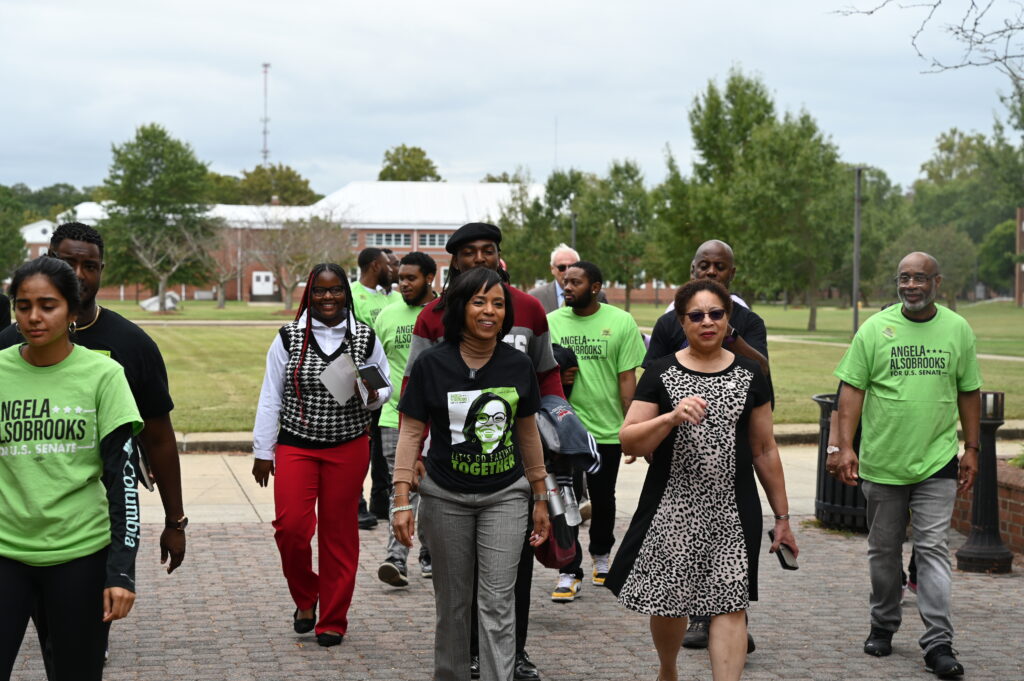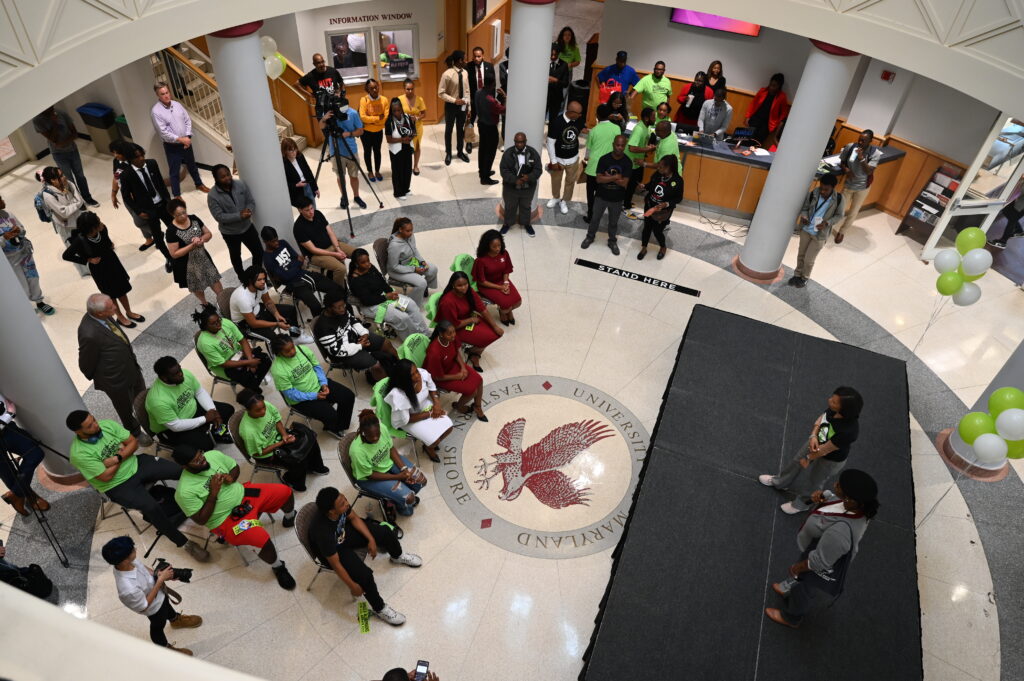
When Angela Alsobrooks arrived at the University of Maryland Eastern Shore on Wednesday afternoon, it felt like a reunion.
Flanked by members of her campaign team and UMES alumni, Alsobrooks, the Prince George’s County executive and Maryland Democratic Party candidate for U.S. Senate, was greeted with hugs and handshakes from members of a UMES contingent that included President Heidi M. Anderson, SGA president Keith Ceruti II, and SGA vice president Jada Wilkinson.
Alsobrooks’ visit, her second to the campus this year, featured an event in the Student Services Center rotunda where she addressed students and fielded audience questions about policy and why she visited UMES.


“I’m a mother of a 19-year-old,” she said. “I recognize how important it is to come and talk to and inspire these students and to be inspired by them. And the only way to truly understand the people we represent is to show up where they are, listen to them, and talk with them.”
One of the students Alsobrooks talked with was senior History major Quinton Smith. Smith, a democracy fellow for UMES’ Campus Vote Project, said Alsobrooks’ visit was vital.
“It’s important for candidates to come to our campus, lay out their platform, and allow students to learn more about what they’re running for who they are as a person, and how it directly impacts them,” Smith said. “It makes sense for her to come here to the Eastern Shore, because we represent a big part of her campaign, the youth vote.”
Almazi Matthews, a senior agriculture major and Prince George’s County resident said she looked forward to talking and meeting with Alsobrooks.
“I have never had an experience like this,” Matthews said. “My heart was pounding, and I was so excited. It was great seeing how many people were here who are also invested in this election season and its importance.”
With a win in November, Alsobrooks would become just the fourth African-American female U.S. senator in history. While that honor is of historical significance, Alsobrooks said voters should also want a government that reflects the demographics of its citizens.
“I think every race, gender, and background should be represented because it makes our politics better,” she said. “The lived experiences of every person in our community should be reflected in that.”

